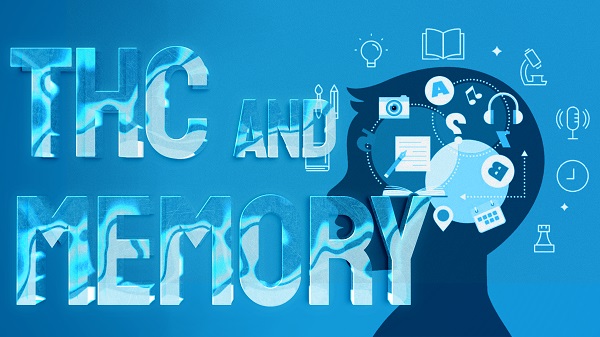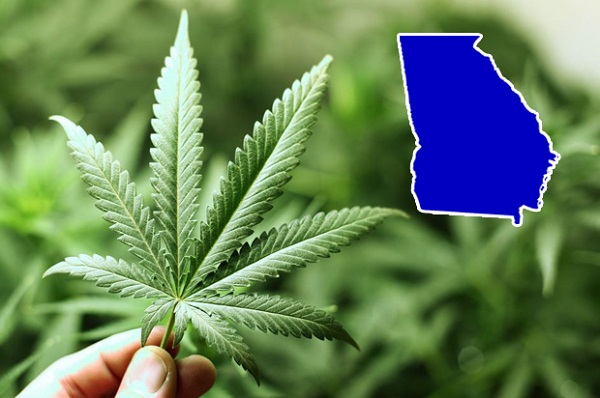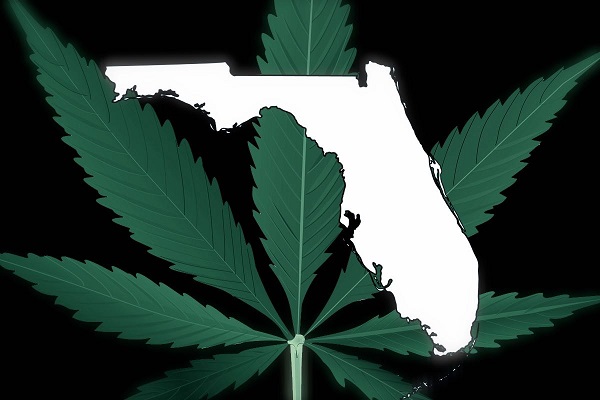The connection between cannabis use and memory impairment has long been known. The longevity of knowledge in this area is such that it has become part of the stereotypical perception of people who use cannabis. Numerous studies support this connection, but is it possible that cannabis can also improve memory in certain situations, such as brain injuries? How does cannabis affect the recovery of episodic memories?
Memory continues to be one of the most mysterious aspects of the human brain for all fields of science studying this phenomenon, including neuroscience, biology and psychology. Encoded memories and experiences in a form that can be recalled on demand or on a subconscious level are of key importance for human functioning in the world around us.
From a scientific perspective, memory can be explained to some extent in terms of brain areas and the way information is transmitted and stored by neurons in these areas (https://www.sciencedirect.com/science/article/pii/S2213158217302966?via%3Dihub). From a psychological perspective, memory is related to a number of psychiatric disorders, such as post-traumatic stress disorder, while also being a tool that can be used for psychological healing (https://journals.sagepub.com/doi/10.1177/070674371506001204).
The effects of cannabis on memory are most often associated with negative effects, such as short-term memory impairment. However, some aspects of the effects of cannabis on memory, which may even be positive, are often ignored by modern science.
What does modern science tell us?
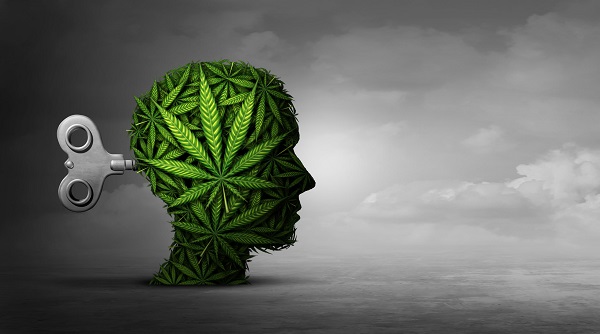
Numerous studies have been conducted to examine the relationship between cannabis use and memory impairment. It is widely known that acute cannabis poisoning results in impairment of short-term episodic and working memory, which is believed to persist for several weeks after use (for long-term users).
However, some studies have found no significant long-term effects (https://www.ncbi.nlm.nih.gov/pmc/articles/PMC3931635/). Because impairment is thought to depend on multiple factors, including cannabinoid ratio, duration, and frequency of use, perhaps these inconsistent results can be explained by differences in research methodology (https://www.dovepress.com/the-effect-of-cannabis-use-on-memory-function-an-update-peer-reviewed-fulltext-article-SAR).
There is evidence that visual-spatial memory impairment caused by cannabis use affects women unevenly, with more heavy users experiencing more impairment than those who use less (https://doi.org/10.1159/000289132). This aspect should be taken into account in future studies, and men and women should be studied separately for the most accurate results.
The lack of a statistically significant association between memory and cannabis use in some studies may be due to the underrepresentation of women in these studies. This is a problem for many studies on substance use, which are generally more commonly used by men.
The study found that encoding, storage, processing and retrieval processes are impaired when cannabis use is prolonged and intense (https://pubmed.ncbi.nlm.nih.gov/2801665/). These impairments are similar to those that occur in acute intoxication and are related to the duration, frequency, dosage and age of initiation of cannabis use.
Age can affect the degree of long-term memory impairment. Some studies suggest that adolescents with cannabis dependence may suffer from selective short-term memory deficits that persist for at least 6 weeks after the last cannabis use (https://pubmed.ncbi.nlm.nih.gov/19630708/). These deficits may manifest in auditory, verbal, and visual-spatial aspects. These impairments are thought to arise from functional changes in the developing brain caused by early cannabis use.
Changes in brain activity when using cannabis?
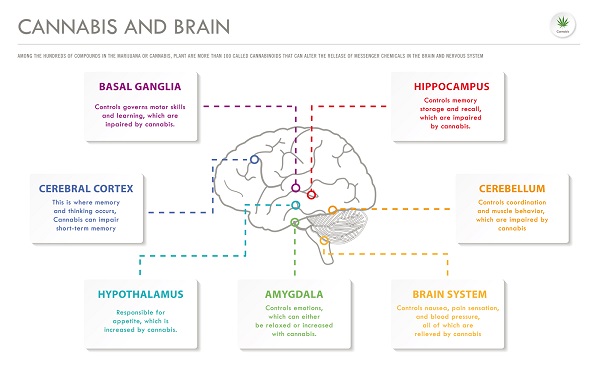
According to magnetic resonance imaging and similar research methods, when poisoned by cannabis, people use different areas of the brain to perform tasks related to learning, information retention, and memory.
A study published in 2006 concluded that cannabis users show lower brain activity than nonusers (https://doi.org/10.1016/j.euroneuro.2006.10.003). This difference can especially be seen in areas involved in associative learning, as well as in the parahippocampal and right dorsolateral prefrontal cortex. Nevertheless, they can still successfully perform learning tasks.
When parahippocampal areas were analyzed, no structural differences were found between cannabis users and non-cannabis users. Consequently, the lower brain activity and resulting memory impairment may not indicate nerve tissue damage, but may be the result of a separate variable associated with cannabis use, such as changes in cerebral blood flow.
One study showed that cannabis use significantly impairs learning and memory on tasks that activate the hippocampal region. Cannabis users showed worse performance on learning, as well as on short-term and long-term memory (https://doi.org/10.1016/j.neuroimage.2007.12.059). During learning, cannabis users showed higher visualizing activity, dependent on blood oxygen levels, in the right parahippocampal gyrus. These results indicate functional deficits and compensatory processes in cannabis users.
It is widely believed that the cortex, rather than the hippocampus, is the primary site of information storage, but the hippocampus is necessary to accommodate certain types of memory in the cortex. Although their roles are not fully understood, it is believed that the cortex is primarily involved in information storage, whereas areas of the hippocampus are associated with procedural memory priming (https://pubmed.ncbi.nlm.nih.gov/22920849/).
Cannabis improves memory in neurodegenerative diseases
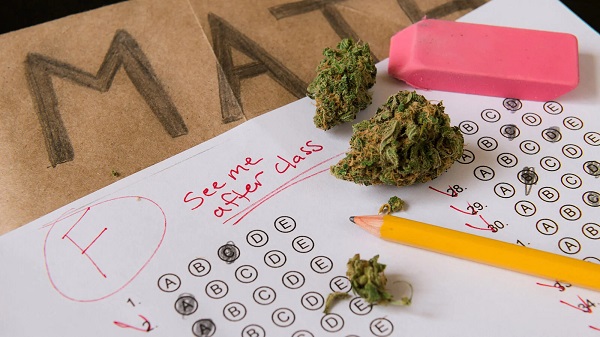
THC seems to have a significant effect on memory in healthy people, but CBD helps to mediate this impairment. However, in people with certain degenerative diseases, both THC and CBD can have neuroprotective effects, suppressing ongoing memory impairment and possibly even improving it (https://jneuroinflammation.biomedcentral.com/articles/10.1186/1742-2094-9-10).
Research suggests that cannabinoid therapy may have the potential to slow the progression of Alzheimer’s disease and perhaps even help repair damaged brain tissue. It is also known that cannabinoids can reduce the persistent inflammation of brain tissue that eventually leads to neuronal death in Alzheimer’s disease, as well as help regulate glutamatergic transmission. This process is crucial for long-term potentiality of memories. In addition, cannabinoids can reduce the characteristic plaques that form in nerve tissue as a result of Alzheimer’s disease (https://pubmed.ncbi.nlm.nih.gov/24634659/). Thus, cannabinoid therapy may represent a promising approach to treating Alzheimer’s disease and other degenerative brain diseases.
The key to improving memory in degenerative brain diseases seems to be THC and other CB1 receptor agonists. Studies have shown that the synthetic cannabinoid WIN 55,212-2, which is one such agonist, can reduce brain tissue inflammation and improve working memory in old rats. In addition, another study showed that treatment with WIN 55,212-2 in old rats resulted in neurogenesis (growth of new nerve cells) in the hippocampus with marked improvements in cognitive ability (https://doi.org/10.1016/S0014-4886(03)00399-6).
Hemp also contains other compounds that may help improve memory in degenerative brain diseases. For example, terpenoids and flavonoids found in various plant species have been shown to improve memory in patients with Alzheimer’s disease. Although there have been no specific studies of cannabis terpenoids and Alzheimer’s disease, it is possible that they have an effect, at least in the context of the entourage effect (https://doi.org/10.1016/j.neurobiolaging.2007.04.028).
The importance of cannabis in forgetfulness
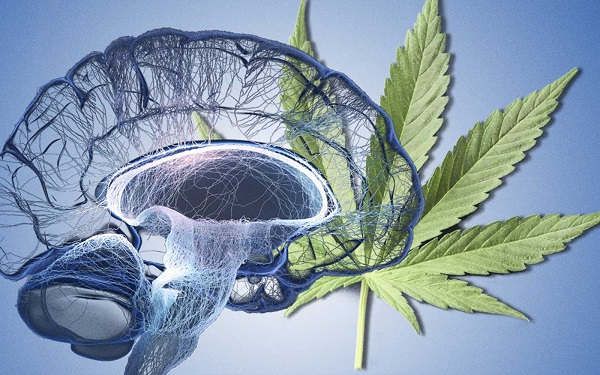
Although cannabis is known for its ability to impair memory, this property can be useful in medicine. A studied potential use of THC is to suppress or erase negative or traumatic memories, such as in people suffering from post-traumatic stress disorder (PTSD) (https://ajp.psychiatryonline.org/doi/full/10.1176/appi.ajp.2007.07030525).
Acquiring and retaining negative memories is an important part of learning how to avoid danger by developing behavioral responses. If a negative experience is repeated repeatedly, the reaction becomes reinforced and instinctive. Without such reinforcement, the reaction weakens over time until it disappears. However, in people who have been subjected to severe repetitive trauma, the response does not weaken even in the absence of the initial stimulus.
As our knowledge of the role of the endocannabinoid system (particularly the CB1 receptor) in memory and learning increases, it is becoming apparent that it plays a key role in the fading of unpleasant memories. A study published in 2002 showed that CB1 receptor-deficient mice exhibited a reduced ability to fade unpleasant memories when subjected to auditory fear learning tests, while showing no impairment in learning or memory perception (https://pubmed.ncbi.nlm.nih.gov/12152079/).
Activation of the CB1 receptor by an agonist such as anandamide is key to memory fading. Thus, THC is likely to be useful in the long-term treatment of PTSD and related disorders.
Reproducing episodic memory
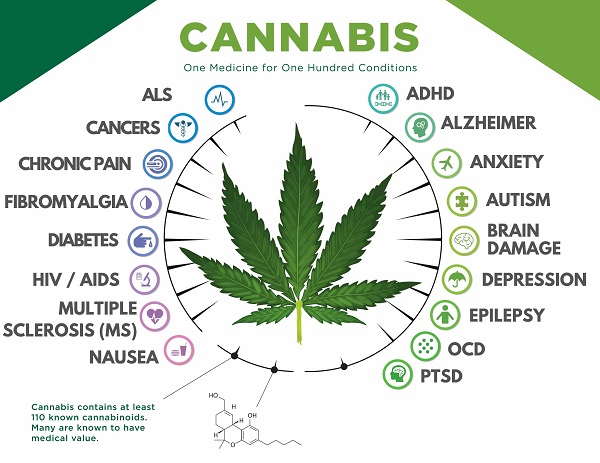
Sebastian Marinkolo, in his essay on marijuana-insights.com, describes that many cannabis users report an increase in what cognitive scientists call “episodic memory” or “autobiographical memory” of past events than usual. This includes resurrecting repressed memories under the influence of cannabis or simply recalling childhood memories.
Carl Sagan particularly notes the effects of cannabis on episodic memory in his famous article “Mr. X.” (https://www.organism.earth/library/document/mr-x) Specifically, he writes in his article:
“When I am high, I can reach into the past, recall childhood memories, friends, relatives, toys, streets, smells, sounds and tastes of a bygone era. I can reconstruct real events from childhood events that were only half-understood at the time.»
In another personal story from Lester Greenspoon’s blog, marijuana-uses.com, 19-year-old computer programmer Mackenzie Cross (http://marijuana-uses.com/what-i-like-about-marijuana-by-%E2%80%9Cmackenzie-cross%E2%80%9D/) writes in her personal account, “What I like about marijuana.”
“Memories seemed to come flooding back to me, very quickly but very gently. As a child, I began to remember things that made me really happy and joyful. Things I had either forgotten about or just hadn’t taken the time to do. I remembered putting my hands up as a signal to my mother that I wanted to be carried, and the absolute joy I felt when she leaned over and pulled me to her chest. I realized how much she really loved me when I remembered how much I longed for her goodnight kisses that never ran out.”
Cannabis users often report these episodic memory retrieval episodes. They are often associated with strong emotions, as described by Carl Sagan and Mackenzie Cross in their personal experience stories. This suggests a strong connection between emotion and episodic memory, and it represents an interesting area of research on the subject of the effects of cannabis on memory.
THC, introspection, empathy and emotions
These two reports demonstrate that cannabis can not only improve recall of episodic memories, but also preserve the emotional context of those memories. Studies show that emotions can help better recall context but not necessarily elements of it, which may explain why cannabis improves episodic memory but can distort short-term memory. CB1 receptors that are associated with cannabis are located in brain structures responsible for emotion processing (these areas include: the basolateral amygdala and the prelimbic division of the medial prefrontal cortex (mPFC).
Sebastian Minkolo explains that improved episodic memory during cannabis use may be a partial explanation for why many cannabis users report increased introspection and empathy for others. Interestingly, this has also caught the attention of some research scientists. One study found that cannabis users were more sensitive to angry faces than happy ones, indicating a stronger empathy for negative emotions.
Psychologically speaking, empathy is considered a positive trait that promotes prosocial behavior and moral reasoning. In addition, episodic memory and empathy are considered to be cognitive abilities that are closely related, although there has been little scientific research to support the extent of this relationship.
The function of episodic memory for self-reflection, reflection, and empathic behavior is crucial. Considering all of this, we can say that cannabis can induce such powerful episodic memory attacks. Furthermore, the effects of cannabis on human memory can be considered positive.
There is little research on the effects of cannabis on episodic memory, which is a particularly interesting area of research and could have important implications for the use of cannabis in psychological or psychiatric practice.
While the old stereotype that cannabis use leads to memory impairment seems generally true, it is clear that the relationship between the endocannabinoid system, learning and memory is very complex and cannot be broken down so easily.
Under normal conditions, THC use can negatively affect memory, but the presence of CBD in certain proportions can mitigate or completely eliminate these effects. In addition, cannabinoids can have neuroprotective effects in degenerative diseases and brain injuries, and can help restore memory.
Current scientific research largely confirms that memory impairment is a negative aspect of cannabis use. However, in cases such as post-traumatic stress disorder, memory impairment may have medical applications.
Interestingly, anandamide, the body’s endogenous cannabinoid, is responsible for forgetting and boosting mood. This is related to the fact that forgetfulness is an important characteristic for human happiness. The lack of research on the effects of cannabis on episodic memory and the consequences of these effects indicates our lack of understanding of this complex topic. However, we do know that cannabis can both make a person forget and help him remember. Both of these effects are closely related to emotion and can occur in the medical use of cannabis.

